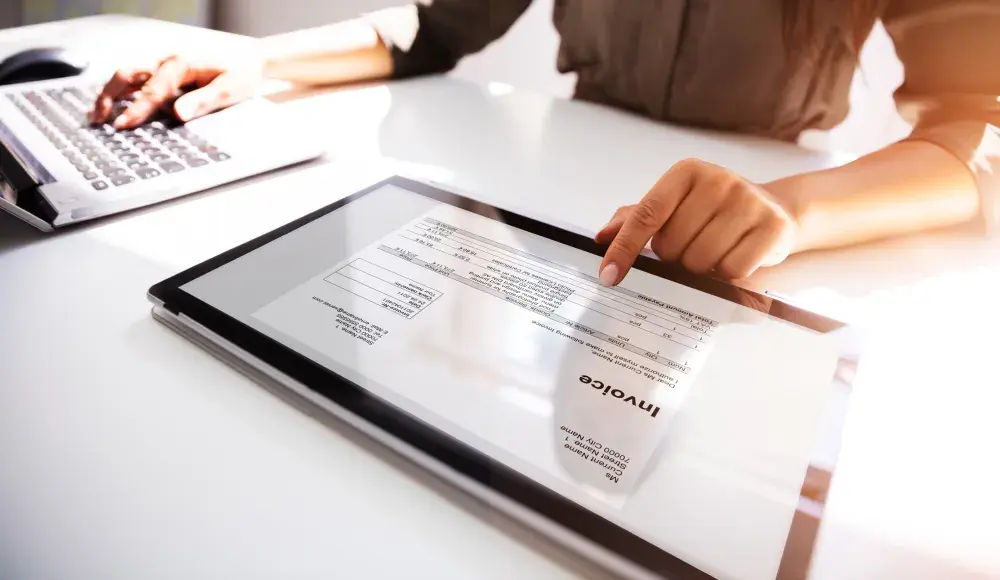
TicketBAI: myths and facts about its mandatory implementation
TicketBAI is the system driven by the three Basque provincial tax authorities and the Basque government to prevent tax fraud. It requires that all invoices generated by the sale of goods or the provision of services be sent electronically to the tax authorities using invoicing software that complies with the regulations.
Although it has been mandatory for over a year for all individuals and legal entities engaged in economic activities in Alava and Guipuzcoa, in the province of Vizcaya its compliance is integrated within a more complex regulation called Batuz, which has extended its adoption period.
There are many myths about its implementation, but which of them are true and which are not? We answer the most common ones in this article, on the occasion of the most recent phase of the implementation period.
The Most Common Myths about TicketBAI
Myth 1: If I am self-employed, I am not required to comply with TicketBAI
Reality: The regulations apply to both companies and self-employed workers engaging in economic activities within the Basque Country. It does not matter if the clients are intermediaries or end customers; if you are a taxpayer, you must have compliant invoicing software with an internet connection. This will allow you to generate an electronic XML file at the time of sale, send it to the corresponding regional tax office, and ensure that the invoices include both the identification code and a QR code to verify that the invoice has indeed been declared.
Myth 2: My business is small and doesn't need an invoicing software compatible with the new legislation
Reality: Every taxpayer, including small businesses like bakeries, hairdressers, and bars, must have invoicing systems adapted to its requirements. Therefore, if you have a legal domicile in the Basque Country and issue invoices or sales receipts, or if you sell POS software to companies based in the Basque Country, TicketBAI is mandatory.
Myth 3: I need to change my billing software
Reality: It’s not necessary to completely change it. Depending on the billing system you use, there are solutions in the market that will allow you to comply with TicketBAI. For example, the SIGN ES TicketBAI API can be easily integrated with your ERP, POS, or any other existing invoicing system, complying with all regulations.
Myth 4: TicketBAI is already mandatory throughout the Basque Country
Reality: In Alava and Guipuzcoa, it is already mandatory for all individuals and entities engaged in economic activities in these provinces. However, in Vizcaya, obligatory compliance is being phased in gradually until 2026 for the following groups of taxpayers:
- January 1st, 2025: micro-SMEs in hospitality, catering, trade, commerce, repair of movable goods, hairdressing, and other personal services (legal entities and ERARs with legal entities)
- July 1st, 2025: micro-SMEs in hospitality, catering, trade, repair of movable goods, hairdressing, and other personal services (natural persons and ERARs without legal entities)
- January 1st, 2026: entities fully or partially exempt from corporation tax, non-profit organizations, and companies involved in agriculture, livestock, fishing, education, cultural services, and other taxpayers.
If your company belongs to any of these groups and does not yet work with TicketBAI-compliant software or API, our team can help you.
Myth 5: Invoices issued outside the Basque Country do not need to include the QR code
Reality: Invoices issued by companies based in the Basque Country must comply with TicketBAI, regardless of where they are issued, and therefore must be identified with their respective QR code.
Myth 6: I can send files to the Tax Office even without an internet connection
Reality: Although this has been one of the main challenges for small businesses, especially those in rural areas, it is essential to have an internet connection to comply with TicketBAI. This allows to generate a file, sign it electronically, send it to the tax authorities in real time, and include the identification code and QR on the invoice.
However, what if there is a power cut or no internet access at a given moment? If the files can be generated but not sent to the tax administration, the invoicing software must be able to archive the chained files that have been generated and send them as soon as the connection is restored.
Myth 7: The tax authorities will have complete knowledge of all my business activities
Reality: This new system ensures that all transactions are recorded, but the privacy of the taxpayer is guaranteed at all times. A secure solution like our TicketBAI API, safeguards the privacy of our clients' tax data through strict technical and organizational security measures based on ISO 27001, to protect the integrity, confidentiality, and availability of information on our platforms.
Myth 8: My billing process will remain the same
Reality: Another significant change introduced by Batuz is that the digitalization of your billing will allow you greater control over it. It will no longer be possible to create, modify, or delete invoices manually; each issued invoice must be registered and sent to the tax office via secure software. Although this may alter your billing process, it brings multiple benefits such as process automation and improved communication with the Tax Agency.
Myth 9: Implementing TicketBAI is expensive
Reality: Acknowledging the challenges some businesses face when implementing it, the government and tax authorities of Biscay provide a series of aid and tax incentives to support SMEs and professionals. In addition to deductions for early implementation, the authorities have made available aids that cover a percentage of expenses for software updates, acquisition of compatible invoicing systems, and any necessary training to meet the new regulatory requirements.
Myth 10: People over 60 are exempt from complying
Reality: Although there have been requests, only in Guipúzcoa are individuals over 60 years old exempt from the obligation to its complying.
Myth 11: TicketBAI only applies in Spain
Reality: Yes and, in fact, is an exclusive regulation of the three provincial tax authorities of the Basque Country. In the rest of Spain, the implementation of the Anti-Fraud Law is anticipated with the Verifactu systems by 2025, and a new regulation developed by the Navarra provincial tax authority for 2026. Outside of Spain, other countries such as Austria or Germany already have similar fiscal regulations aimed at digitalization and transparency. If you need a fiscal solution for another country, explore our API to find the best fit for your business needs.
Myth 12: Invoices can be sent in bulk instead of in real-time
Reality: Depending on the province, the method of sending invoices varies. In Alava and Guipuzcoa, each file contains the information of a single invoice and is sent in real-time. In Vizcaya, as part of Batuz, the sending of files is not automatic, but they must be included within the first chapter of the LROE books.
TicketBAI API, Veri*Factu, and electronic invoicing: all in SIGN ES
TicketBAI represents a significant step towards transparency and digitalization in fiscalization, with efficiency as one of its main benefits. To facilitate its compliance,the SIGN ES API can seamlessly integrate with your invoicing system to meet all the requirements.
Our SIGN ES solution helps you comply with various tax regulations such as Veri*factu and mandatory electronic invoicing in Spain, through a single API integration. Want to learn more about the different regulations and how to adapt to them? Subscribe to our newsletter to stay updated!



